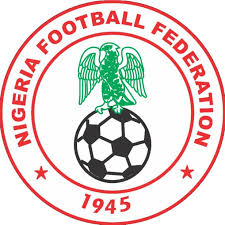By abiodun KOMOLAFE
In his book, ‘Emergency Politics: Paradox, Law, Democracy’, Bonnie Honig urges democracies to “resist emergency’s pull to focus on life’s necessities (food, security, and bare essentials).” According to him, “these tend to privatize and isolate citizens rather than bring us together on behalf of hopeful futures.”
EDITOR’S PICKS
-
JUST IN: Again, UK Court Denies Ekweremadu Bail, Cites EFCC’s Letter
-
[JUST IN] Yuletide: Police Ban Open Street Carnivals In Osun
-
BREAKING: Ramaphosa Re-elected As South African President
To start with, it is an undeniable fact that no society develops if and when the forces inhibiting survival instinct far outweighs the idea, fantasy and the pursuit of development. It is also a fact that this has been the bane of Nigeria’s development and her evolution to a nation-state. They are perpetual pulls which focus on unavoidable necessities of life among the citizenry.
Development beckons when the basic needs of life are assured and/or taken for granted. It goes without saying that, for sustainable development to take place, the people must nurture a rich and distinct identity, which must be based on stuff like common interests, geospatial proximity and similar historical and ancestral sociocultural connections. In a word, spewing out government policies or imposing sanctions aimed at uniting the people without the sustenance of the basic needs of life is a futile exercise.
In a functional institution, the first thing to bear in mind is that the institution has assumed abilities and capabilities. Likewise, a political party is supposed to respond to issues thrown at it, based on the understanding and capabilities of its essence! With a particular reference to Africa, what the leadership of most political parties has done so far is to keep the system perpetually unable to respond to them negatively. It is also interesting to note that politics in this part of the world would not have become a one-man show if society had not allowed it. This further explains the diverse methods and approaches explored by political gladiators and governments to define and administer public administration in Nigeria.
While personalization, or myonisation of the political institution is an error that’s capable of destabilizing the society, the indisputable truth about life is that it is never static! It shifts! For instance, an uninformed commentator, especially one with no deep understanding of politics in the African setting, may argue that Bola Tinubu has myonized the ruling All Progressives Congress (APC). An unreconstructable wannabe may also hypothesize that the Adeleke Dynasty has become a leech on the destiny of the Peoples’ Democratic Party (PDP) in Osun State; that nobody gets anything in the party and, now, in the government of Osun State without embarking on a ‘deigning’ voyage to their Ede, Osun State ‘Country Home.’ But, if we may ask: how did these suppositions start before we got to where we are? Where did the rain start beating us before it eventually became a manifest phenomenon?
If the Tinubus and the Adelekes were seen as strange or external agents who crept into their respective parties just to satisfy their individual fantasies, why not maim their aims so that what remained would be political parties, purely? But again, will these political parties survive without these gladiators? If the true ownership of a political party belongs to those who fund it, then, where were those who once went on survival adventures elsewhere when Osun PDP, for instance, was gasping for breath before the Adelekes saw an opportunity and invested their savings as the oxygen for its revival? Now that it has responded in their favour, is it any wonder that the likes of Olagunsoye Oyinlola no longer have control over a vehicle in which he once rode to become the governor of Osun State?
Let’s get it right: political party formation departed from the founding fathers’ ways back, albeit for selfish reasons. Unfortunately, what we have now is the formation of parties behind personalities; and the personalities are not just personalities, they are personalities with wealth. By nature, it is not in their objective interest to wait for the people to come together – as members of the party – to pay their monthly dues and levies, for the purpose of funding its activities. No! The orientation is that members are to be fed and placated; which initiates the ‘entitlement psychology’ in the people. Where then is the commitment to the joint ownership of the party, more so as those who came and were fed were only organized to appear at a particular place; and they did?
Once upon a time in Nigeria, how characters like the late Paschal Bafyau rose to become the president of the Nigeria Labour Congress (NLC) was a function of certain conjectures. Adam Oshiomhole’s case was not any different in that he also came through the implications and the complications of the said system. Isn’t it sad therefore that those who were once beneficiaries of the system’s large-heartedness, so to say, are now the ones destroying its fabric, even within the unit that produced them? Interestingly too, successive governments have so perfected the art that it has more or less become the norm: whenever the government of the day makes a pronouncement that doesn’t go down well with Labour, an industrial action is declared. After some industrial razzmatazz, the government lowers the bar, and Labour suspends the strike, of course, with a warning to the government that a repeat of the act would attract stiffer reactions from Organized Labour. At the end of the day, the general observation is that even those who are remotely connected to the deal would be hugely rewarded, leaving behind helpless and hapless Nigerians who, indeed, can only gnash their teeth.
Emphasizing the connections between contemporary food politics and the infrastructure of consumption, among others, Honig remarked: “we need good citizens with aspirational ideals to make good politics while we need good politics to infuse citizens with idealism.” This again brings us to the effects of emergency politics. Though politics provides governance and the style of public administration, a prominent feature of emergency politics is its capacity to sink into oblivion at the slightest opportunity. Shallow in conception and haphazard in implementation, its benefits may come like a thief in the night but, except by some divine happenstance, they pale into insignificance before dawn.
Taking our clime as a case study, there’s no denying that dear fatherland is currently a stratified capitalist society comprising the “small flies” whose “socio-economic conditions reveal little or no intergenerational mobility relative to their parents” and the “great flies” who “abuse their positions for private gains.” The more reason ‘our great leaders’ in this fertile ground for political prostitutes are having nothing straightforwardly great to will; and nothing startlingly special to offer the(ir) small men. It is also the reason the(ir) small men are frustratingly searching the dustbin for their daily needs!
Political parties are created for a purpose; and that purpose is as defined by the political gladiators, and the entire people in the society will have to acquiesce. It is the structure of the society that determines governance. It’s only within the precinct of the set barometer that one operates. One cannot operate outside it. The tragic truth is that Nigeria’s democracy is presently grumbling in the gulf of dishonesty and contrived promises, even as cohesion has long left our political platforms. Insecurity is threatening our coexistence and the monetary system is diffidently beaming because it is no longer monitoring anything. That the governed appear left with a feigned or an imaginary understanding of the vision of the government is a major problem, which is so real.
FURTHER READING
-
[JUST IN] Withdrawal Limits: Again, Emefiele Fails To Honour Reps Invitation
-
BREAKING: Ekiti Assembly Announces Compulsory Medical Check-up For Workers
-
BREAKING: Ohanaeze Calls For Arrest, Repatriation Of Simon Ekpa
May the Lamb of God, who takes away the sin of the world, grant us peace in Nigeria!
*KOMOLAFE wrote in from Ijebu-Jesa, Osun State ([email protected]
Click here to watch our video of the week:
Advertise or Publish a Story on EkoHot Blog:
Kindly contact us at [email protected]. Breaking stories should be sent to the above email and substantiated with pictorial evidence.
Citizen journalists will receive a token as data incentive.
Call or Whatsapp: 0803 561 7233, 0703 414 5611
















